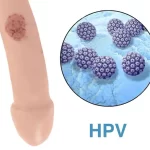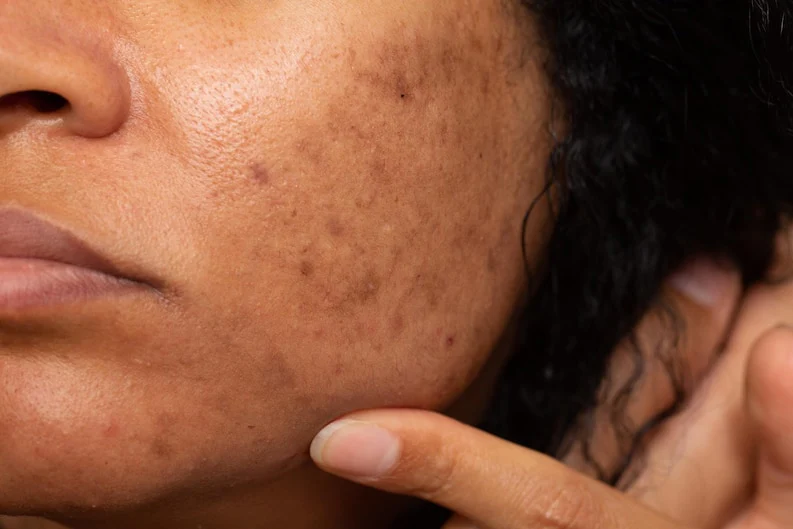Postpartum/Postnatal Depression
Postpartum, or postnatal depression (PPD), is a serious mental health condition that affects many new mothers after childbirth. Characterized by feelings of extreme sadness, anxiety, and exhaustion, PPD can interfere with a mother’s ability to care for herself and her baby.
Understanding the causes of postpartum depression is crucial for effective prevention and treatment.
- Hormonal Changes
One of the most significant contributors to postpartum depression is the rapid hormonal changes that occur after childbirth. During pregnancy, levels of estrogen and progesterone are at an all-time high.
However, within the first 24 hours after delivery, these hormone levels sharply drop back to their pre-pregnancy levels. This sudden change can trigger mood swings and depressive symptoms.
Additionally, changes in thyroid hormones, which also drop after childbirth, can contribute to feelings of fatigue, depression, and irritability.
- Physical Changes
The physical toll of childbirth is substantial and can contribute to PPD. Recovery from delivery, whether vaginal or cesarean, involves physical pain and discomfort. New mothers often face issues like perineal pain, breast engorgement, and fatigue from sleepless nights.
These physical challenges can affect a woman’s mood and energy levels, potentially leading to depressive symptoms.
- Emotional Factors
The emotional and psychological demands of new motherhood can also play a significant role in the development of postpartum depression. Many new mothers experience feelings of inadequacy, guilt, or doubt about their ability to care for their newborn.
The overwhelming responsibility of a new baby, coupled with a lack of sleep, can exacerbate these feelings. Women who have a history of depression or anxiety, or those who experienced significant stress during pregnancy, are at a higher risk of developing PPD.
- Lack of Support
Support systems are critical in the postpartum period. New mothers who lack support from partners, family, or friends are more vulnerable to postpartum depression. Isolation can intensify feelings of sadness and helplessness.
Conversely, strong social support can provide emotional relief and practical help, reducing the risk of PPD.
- Personal and Family History
A personal or family history of depression or other mental health conditions significantly increases the risk of developing postpartum depression. Women who have experienced depression in the past are more likely to experience it again after childbirth.
Additionally, a family history of depression or bipolar disorder can predispose a new mother to PPD.
- Complications in Pregnancy and Childbirth
Complications during pregnancy and childbirth can be traumatic and contribute to the onset of postpartum depression. Experiences such as preterm labor, a difficult delivery, or a baby born with health problems can be distressing. These events can lead to feelings of anxiety, fear, and grief, which may evolve into PPD.
- Breastfeeding Challenges
While breastfeeding can be a bonding experience, it can also be a source of stress for some new mothers. Issues such as difficulties with latching, concerns about milk supply, and physical discomfort can contribute to feelings of frustration and inadequacy.
Mothers who struggle with breastfeeding may feel guilty or feel they are failing their baby, which can exacerbate depressive symptoms.
- Sleep Deprivation
Sleep deprivation is a common experience for new parents and can have a profound impact on mental health. The lack of adequate rest can lead to cognitive impairments, mood swings, and heightened emotional responses.
Persistent sleep deprivation can contribute to the development of postpartum depression by exacerbating feelings of fatigue and hopelessness.
- Societal and Cultural Pressures
Societal expectations and cultural pressures regarding motherhood can also play a role in PPD. The idealization of motherhood and the expectation to be a perfect parent can create unrealistic standards.
Mothers may feel pressured to meet these standards and experience guilt or shame when they perceive themselves as falling short. This pressure can contribute to feelings of inadequacy and depression.
Summary: Causes and Risk Factors of Postpartum Depression
The exact cause of postpartum depression (PPD) is not fully understood. The underlying reasons are multifaceted and often involve a combination of risk factors. Here are some key factors that may contribute to or increase the risk of developing postpartum depression:
- Depression During Pregnancy
- Experiencing depression during pregnancy is a significant risk factor for postpartum depression.
- Previous History of Mood Disorders
- A personal history of mood disorders, such as bipolar disorder or depression, can predispose a woman to PPD.
- Complicated Childbirth
- A difficult labor or complicated childbirth can be physically and emotionally traumatic, contributing to the onset of PPD.
- Post-Labor Pain and Complications
- Pain following labor and other complications, such as urinary incontinence, can lead to increased stress and depressive symptoms.
- Hormonal Changes
- The sharp decline in hormone levels after childbirth is believed to play a significant role in postpartum depression. While all mothers may experience some degree of mood fluctuation, in cases of PPD, these mood changes persist and worsen.
- Social Issues
- Problems in relationships, lack of social support, and isolation (common among single or teenage mothers) can significantly increase the risk of postpartum depression.
- Financial Worries
- Financial stress is another major trigger for PPD, adding to the overall burden and anxiety of new motherhood.
- Unrealistic Expectations
- High or unrealistic expectations about mastering motherhood quickly can lead to feelings of inadequacy and depression if those expectations are not met.
- Exhaustion and Stress
- The exhaustion and stress caused by lack of sleep, especially if the baby has colic or other health problems, can severely impact a mother’s mental health.
- Family History of Depression
- A family history of clinical depression, particularly among first-degree relatives like parents or siblings, increases the likelihood of PPD.
- Substance Abuse and Medication
- Women with a history of substance abuse or those who have discontinued certain medications during pregnancy and after childbirth may be at higher risk for PPD.
Understanding these contributing factors is crucial for identifying at-risk individuals and providing the necessary support and interventions.
Recognizing the signs early and seeking help can make a significant difference in the mental health and well-being of new mothers.
Conclusion
Postpartum depression is a complex and multifaceted condition with a variety of contributing factors.
Hormonal changes, physical recovery from childbirth, emotional stress, lack of support, personal and family history, complications during pregnancy and childbirth, breastfeeding challenges, sleep deprivation, and societal pressures all play a role in its development.
Recognizing and understanding these causes is essential for providing effective support and treatment for new mothers experiencing PPD.
With the right care and support, women can recover from postpartum depression and enjoy their new role as mothers.
Benefits of Eating Strawberries
Benefits of Eating Pomegranate

A graduate of Computer Science and Information Management Technology. Diploma – Caregiving, Certificates – Dementia and Diabetes Awareness and Management. A researcher, blogger, songwriter, singer and acoustic guitarist. Born in an environment where natural talents such as healing are imparted at our natural birth. This natural talents of healing is the result of our genetic inheritance and the training from family environment.























